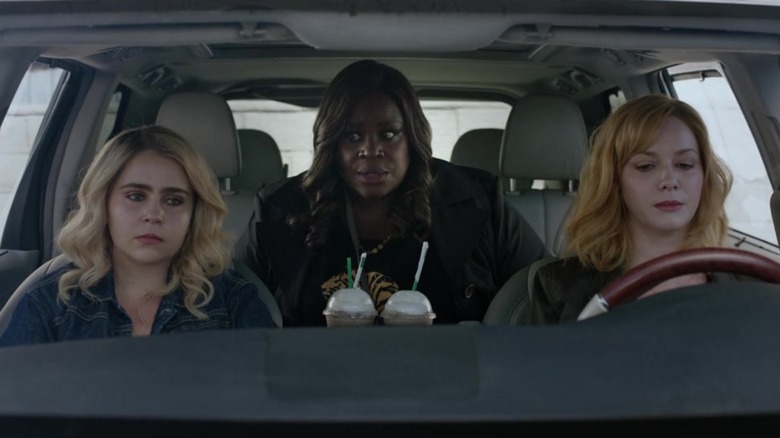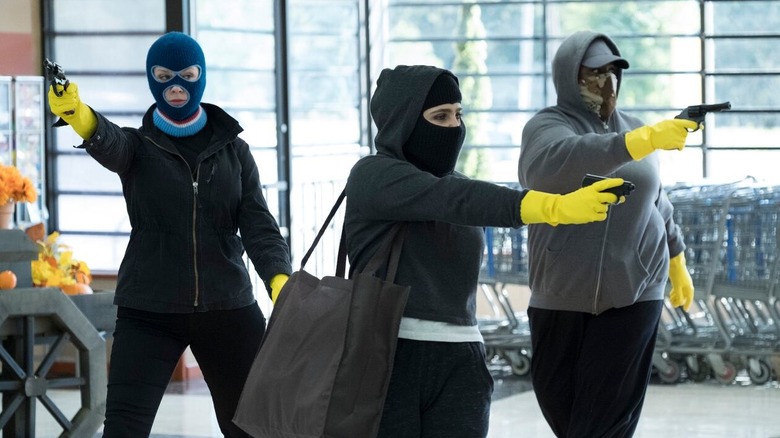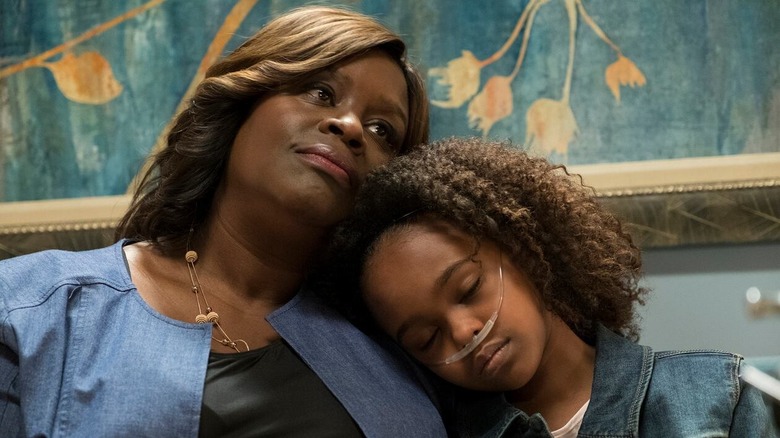How Shonda Rhimes Helped Shape The Way Good Girls Was Written
Shonda Rhimes has been the direct force behind some of our favorite TV shows, from "Bridgerton" and "Grey's Anatomy" to "How to Get Away with Murder." But she's starting to have a ripple effect on other shows, too.
NBC sitcom "Good Girls" follows three moms — Ruby, Beth, and Annie — as they rob a local grocery store when they're desperately strapped for cash. While the moms are sympathetic and really do need the money, they quickly find themselves in over their heads — and caught up in a life of crime.
"Good Girls" isn't a Shondaland project by any means (the show is produced by Universal Television), but according to "Good Girls" creator Jenna Bans, Rhimes still had a significant impact on the show's execution. In interviews with Variety and The Lily, Bans talked about how she picked up a number of Rhimes' strategies throughout her time on Shondaland projects "Grey's Anatomy" and "Scandal," which in turn became instrumental in the creation of Bans' own show.
It's fearless storytelling, and she's the queen of it
While a show about three devoted, loving moms who are driven to a life of crime might be compelling, it's not exactly a common TV recipe — especially when on-screen portrayals of moms have traditionally been very black and white. A woman might be a loving mother with perfect morals, a failure because she could never reach "ideal" motherhood, or a cold, hardened criminal that you'd never picture as a mom. But it's much less common to see an on-screen mom inhabit the space in between, especially when she turns to crime for sympathetic reasons. Bans told The Lily that she drew courage from Rhimes' own casting decisions when coming up with the story:
What I always loved about Shonda when she would be asked questions about casting or diversity or women, she would always say, "Listen, I write the way I see the world. I write the way I experience life."
But Rhimes' influence on "Good Girls" didn't end once Bans came up with her protagonists. The show has a knack for getting viewers hooked, largely thanks to its juicy, high stakes twists — yet another lesson that Bans learned at Shondaland, where Rhimes "never shy[ed] away from telling the boldest, most controversial stories" and constantly pitched "unexpected and surprising" ideas (via Variety). And sure, Beth is no Olivia Pope or Annalise Keating, but it's hard to deny that she and the other ladies in "Good Girls" are constantly facing the same type of tense drama that have made Shondaland shows so iconic.
A timely concept
Even though Bans learned a lot of lessons at Shondaland, "Good Girls" was also very much a product of its time. In her interview with Variety, Bans explained that she came up with the idea because she was frustrated with the conversations surrounding the 2016 election — especially as people began to question of women were able to take on the mantle of president:
Every day I would spend an hour reading the news, because every day it was something crazier and crazier coming out. And then I would start writing. So I feel like somehow the election fueled me — the heightened view of women. I remember watching this news show where the scroll at the bottom was, "Are women fit to be commander in chief?" That's the news scroll! It was just bonkers to me...
As it turns out, the perfect storm was brewing. Combine Rhimes' penchant for unconventional story decisions with larger social questions of what women are capable of and you have a recipe for on-screen moms that break the mold. It's no wonder that "Good Girls" came about when it did — Rhimes may have planted the seeds in Bans' mind, but they still needed some time to bloom.


